ZU: WARRIORS FROM THE MAGIC MOUNTAIN (1983)
Chinese soldiers in an ancient civil war get caught up in a fantastical quest to save the universe.
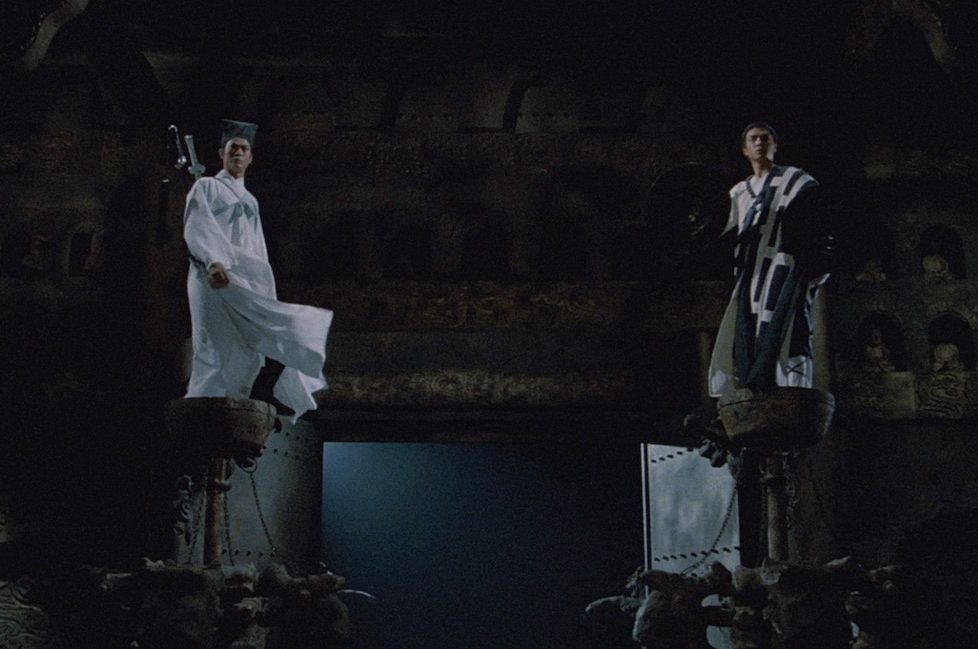
Chinese soldiers in an ancient civil war get caught up in a fantastical quest to save the universe.


Based on Huanzhulouzhu’s magnum opus Legend of the Swordsmen of the Mountains of Shu, director Tsui Hark transformed Hong Kong cinema with his adaptation Xīn Shǔ Shān Jiàn Xiá / Zu: Warriors from the Magic Mountain. This supernatural fantasy epic was notable for combining the wuxia action China was famous for, with cutting-edge VFX from American artists such as ILM co-founder Robert Blalack. The result was an influential part of Hong Kong’s ‘New Wave’ movement (that began in the late-1970s when young filmmakers started making faster, experimental movies), and the first of many classics Hark was involved with over his career.
In 10th-century China during the Tang Dynasty, Blue Army soldier Dik Ming-kei (Yuen Biao) disobeys orders and befriends an enemy fighting for the Red Army known as ‘Fat Man’ (Sammo Hung), joining him in a battle against their mutual foe the Yellow Army. Like much of the film, this opening is allegorical for the politics of the day with Deng Xiaoping’s “one country, two systems” ethos of a reunified China at a time when Hong Kong was negotiating its independence from the British Empire. Tsui Hark’s ensured the crazy fantasy world of Zu: Warriors from the Magic Mountain contained a subtext about opposing powers working together to defeat greater enemies.
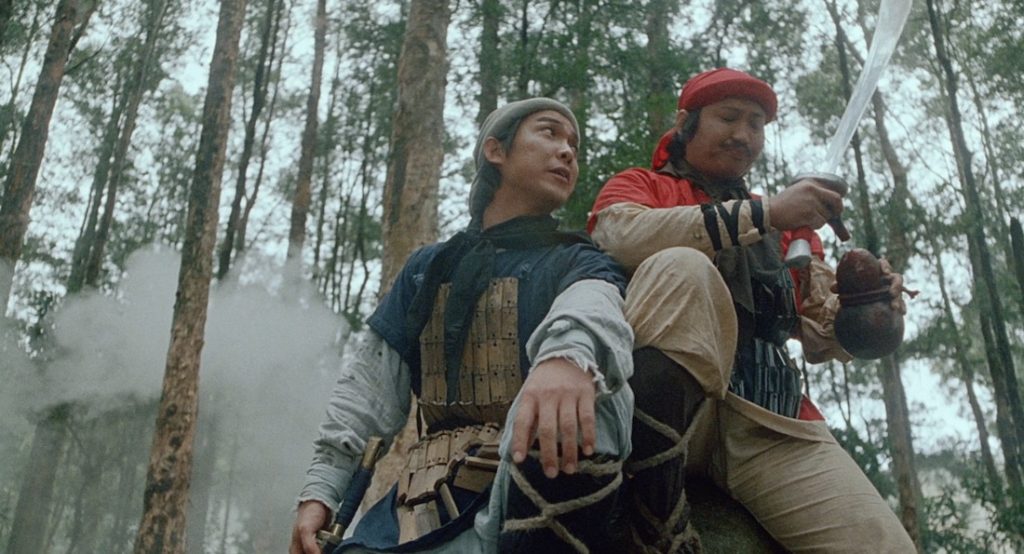
Ming-kei is eventually chased into a mystical mountain range, where he’s assaulted by blue-eyed vampires and saved by magical swordsman Master Ding Yan (Adam Cheng), whom he becomes indebted to. Venturing deeper into the mountain together, both come under attack from a Blood Devil that a powerful mystic, Master Chang Mei (Hung again), literally restrains using his long grey eyebrows! Ming-kei and Ding Yan are then joined on their journey by Chang Mei’s two young disciples, in order to find the fabled ‘Dual Swords’ and defeat the Blood Devil before it’s too late. And so the gang press on to find a Celestial Fort and ask the Ice Queen (Brigitte Lin) for help in their quest to save the world.
Tsui Hark admits his film was partly inspired by the success of George Lucas’s Star Wars (1977), which is ironic as Lucas borrowed a great deal from Asian cinema, and that’s evident with Zu Warriors’ kinetic action and swashbuckling action-adventure tone. Two men even wield “lightsabers” during the zany climax, which comes across like a trippy episode of Saiyūki / Monkey (1978–1980). I also wonder if Ralph Bakshi’s Lord of the Rings (1978) animation was a reference for Hark, as the cavernous interiors evoke a similar feel to the Misty Mountains.
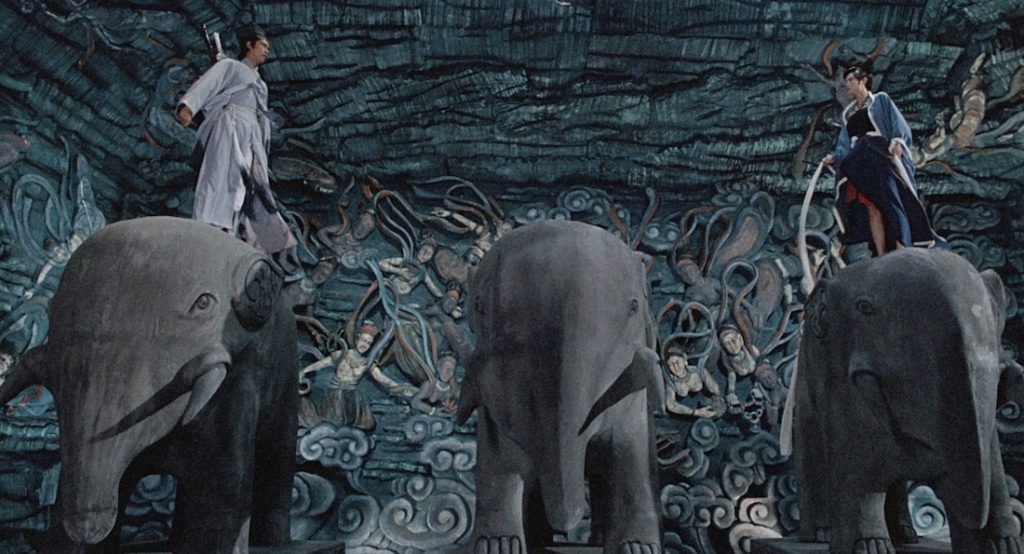
As one can tell from the zany synopsis, Zu: Warriors from the Magic Mountain is a peculiar film. It tells a simple story somewhat overcomplicated by odd diversions and random characters and entities appearing out of nowhere. For westerners, a sense of detachment can creep in because it’s so clearly from a different culture and riffing on old political allegories, exacerbated by how much cinema has changed since 1983. You have to be attuned to wuxia fantasy and Hong Kong filmmaking to reap the most reward from it. Or else spend time researching its background and understand the impact it had at the time, even internationally.
John Carpenter credits Zu Warriors as being a key influence on Big Trouble in Little China (1986), and one can sense a similar tone and catch the occasional stylistic touchpoint. There’s even a bizarre scene when Master Ding Yan shares his Qi with Ming-kei (achieved using “air bladder” latex bags that make it seem like his body’s being inflated like a balloon), that reminded me of Big Trouble’s use of similar VFX when Thunder explodes.
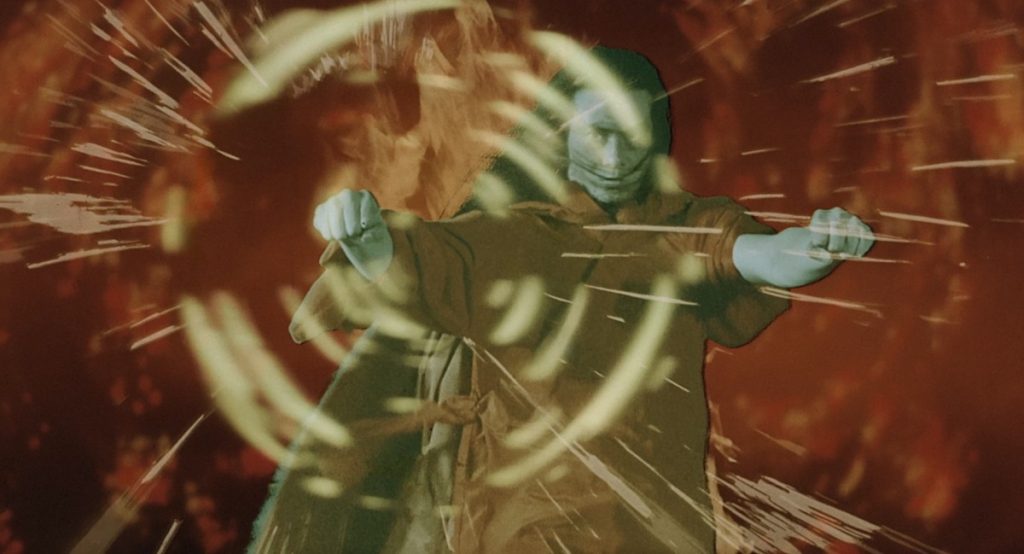
Zu Warriors isn’t a long movie and would have felt lightning-paced in early-’80s China but, to modern eyes, the pacing is choppy and casual viewer’s interest is likely to wane about halfway through. This is due to how action setpieces that start off feeling imaginative and creative begin to feel repetitive and are now look dated, plus the fact there isn’t as much characterisation as western audiences are accustomed to.
The film doesn’t stop to flesh anyone out after Ming-kei is introduced before entering the mountain, which is a shame because those initial scenes are easier to latch onto before the weirdness begins. I was actually disappointed Hammo Sung’s character didn’t join in on the quest, even if he does have a dual role as ‘Long Brows’ and choreographed the fights. Some of these issues were clearly spotted by western distributors, as the European cut (a.k.a Zu: Time Warrior) adds a half-hour of buildup to the mountain quest and changes the entire story to involve the hero being a fish-out-of-water time-traveller!
I don’t want to make the criticism there’s more ‘style than substance’ to Zu Warriors, however, as there’s actually a lot going on beneath the surface regarding Chinese mythology and history… but it’s certainly true the VFX sequences and action becomes humdrum after the novelty of seeing characters pinballing off walls loses its appeal. Although there are some clever uses of lo-fi techniques to achieve visuals that would’ve been otherwise impossible back then, however, like the fearsome Blood Demon essentially being a red cape manipulated around on hoops and wires. The elaborate VFX was seen as game-changing for Asian cinema and set a high bar for subsequent Hong Kong movies of the ‘80s, but perhaps Zu Warriors’ greatest achievement was obscuring the use of wires with subtle mist and lighting techniques by Bill Wong — although a few are still visible in some shots, not helped by the unforgiving clarity of high-definition Blu-ray. I guess there’s a charm to peeking behind the curtain, however.

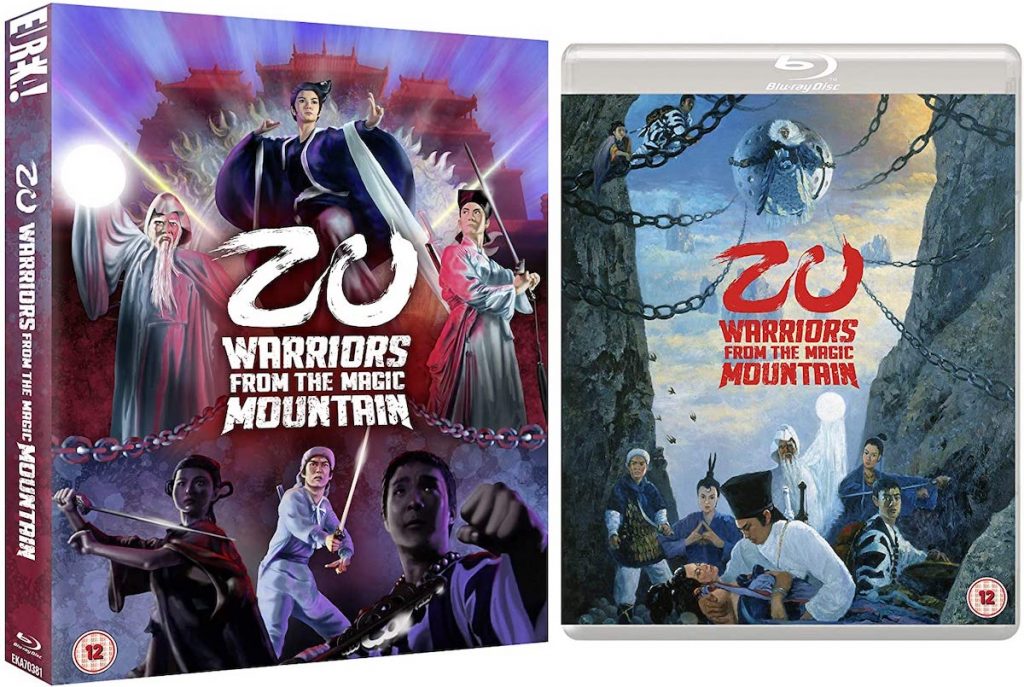
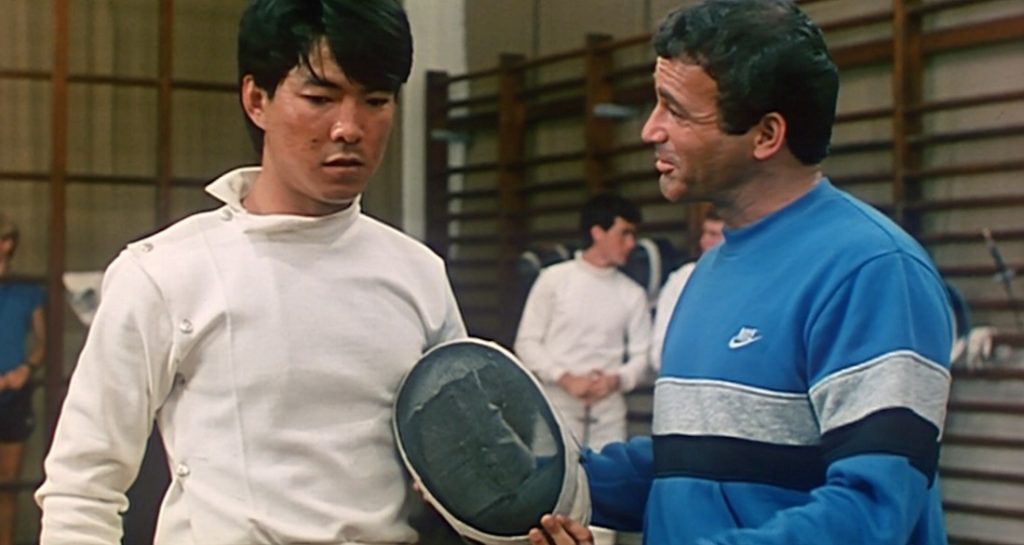
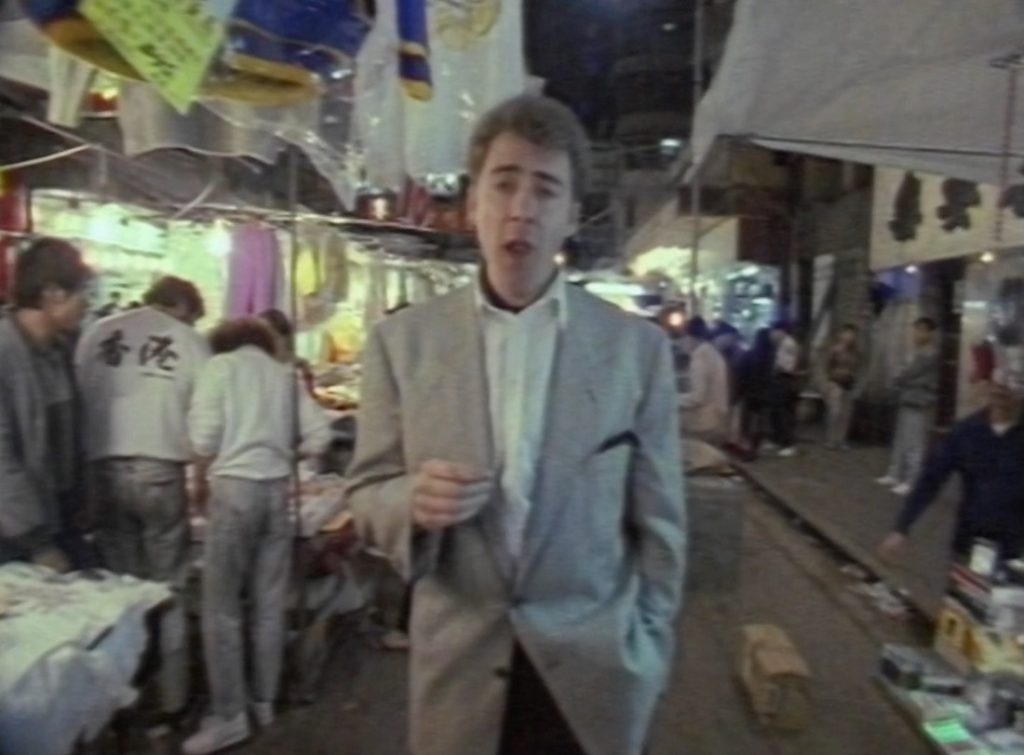
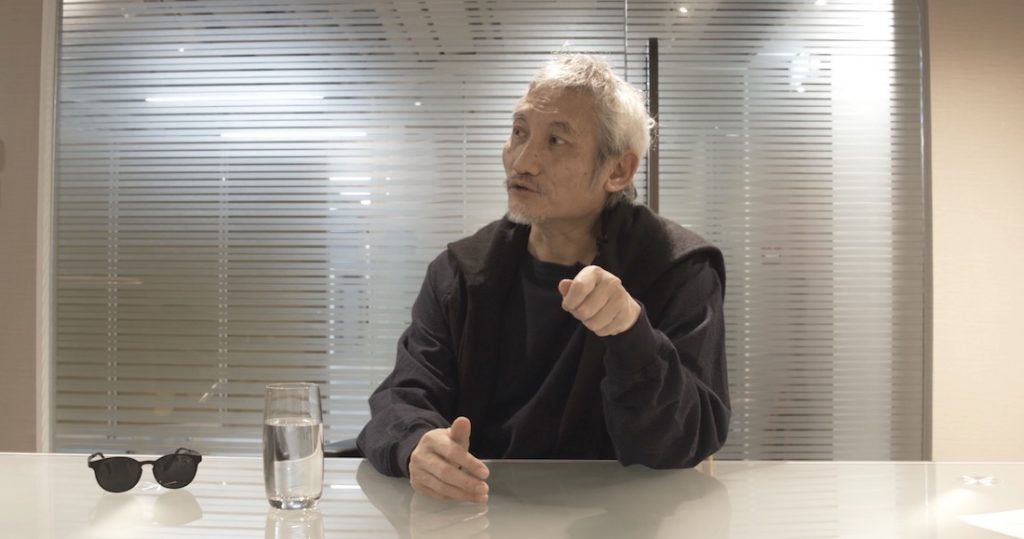
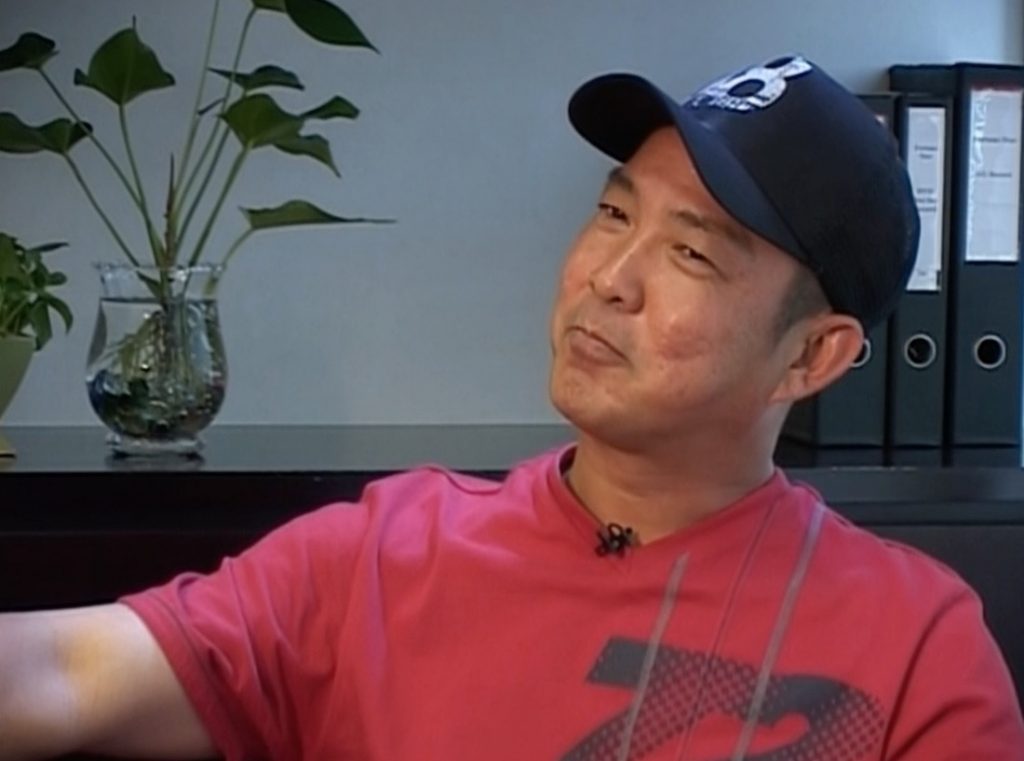
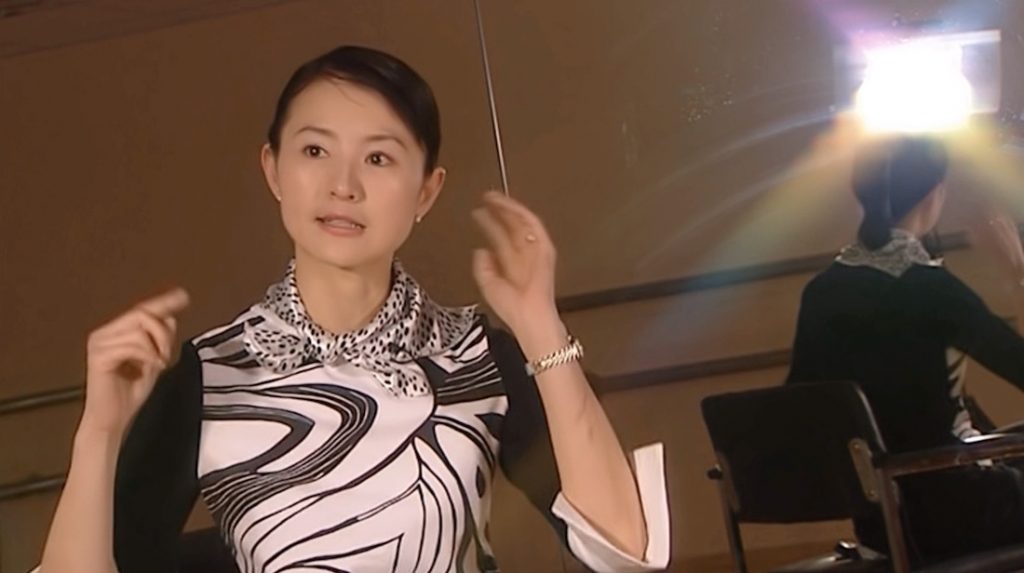
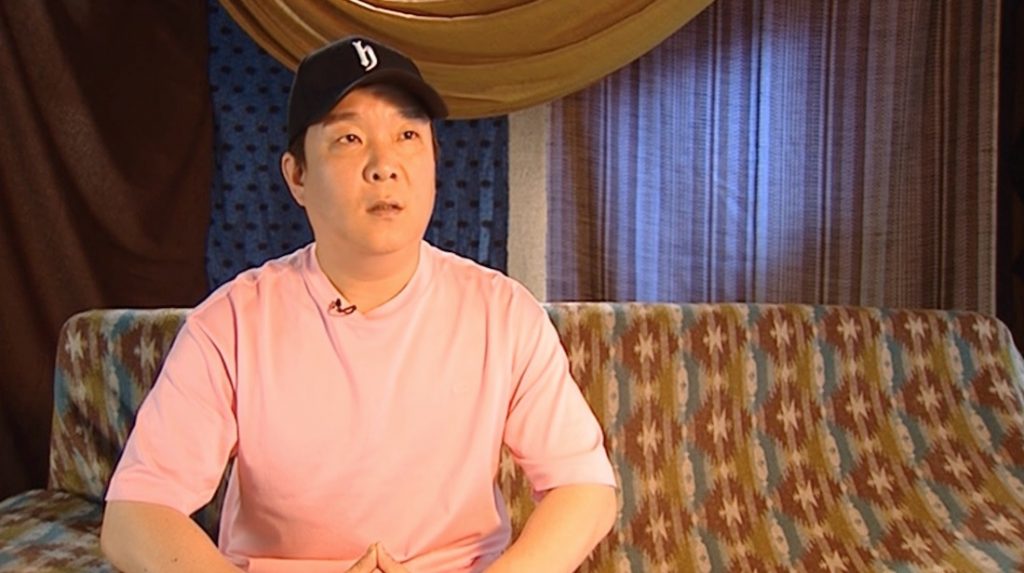

director: Tsui Hark.
writers: Shui Chung-yuet & Sze-to Cheuk-hon (based on ‘Legend of the Swordsmen of the Mountains of Shu’ by Huanzghulouzhu).
starring: Yuen Biao, Adam Cheng, Corey Yuen, Brigitte Lin, Moon Lee, Damian Lau, Judy Ongg, Sammo Hung & Mang Hoi.
